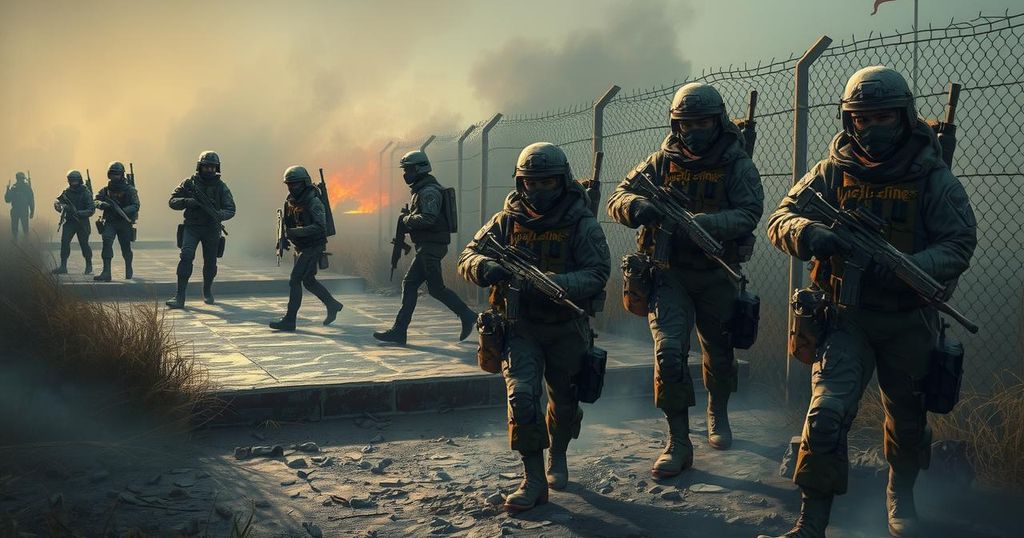Trump Suggests Military Deployment on Domestic Soil If Re-elected
In a deeply concerning announcement, Donald Trump has floated the idea of deploying the military within U.S. borders if he returns to office, redefining military use in domestic policy contexts. He aims to shift troops back from abroad, spearheading controversial measures to dismantle illegal immigration pathways and confront crime linked to drug cartels. This reimagining raises questions regarding civil liberties, constitutional limits, and the overall role of the military in American society.
Trump’s Military Vision for a Second Term
In a striking return to the political arena, Donald Trump has hinted at a potential reshaping of military roles should he win a second term. He has a bold and, frankly, controversial vision for the military, suggesting that it could become a powerful instrument for addressing domestic issues. With plans to relocate thousands of troops currently stationed abroad to the Mexican border, Trump’s proposals risk shaking up not just military norms but the very foundations of governance in the United States.
Rallying Against Domestic Threats
During a recent rally in Colorado, Trump painted a dire picture of urban areas stricken by crime, notably characterizing Aurora as a war zone due to alleged gang control. He stated, “I will rescue Aurora and every town that has been invaded and conquered,” a pledge that raises eyebrows as local authorities contradict such claims. This rhetoric suggests a willingness to implement robust military measures, including the possible deployment of National Guard or regular forces to handle what he perceives as a burgeoning internal threat, whom he refers to as “the enemy from within.”
Plans for Military Utilization
This isn’t just rhetoric; Trump’s allies are laying out serious plans for utilising military resources for domestic policy. The proposals include shifting military assets to assist in deportations, confronting drug cartels, and even potentially conducting mass raids to remove undocumented immigrants. Trump envisions a collaboration among various government departments—such as Homeland Security and the Department of Defense—to handle these operations, a move that many see as a troubling overreach of military capabilities into civilian life.
Congressional Support and Internal Tensions
The landscape in Congress shows surprising levels of support from Republicans who largely back Trump’s controversial plans. Several party members echo the sentiment that they believe these actions are necessary to secure the U.S. border, with some even arguing this is a crisis situation requiring military intervention. There is, however, a notable tension within the Republican ranks, as traditional conservatives express concern about crossing the line into militarising domestic policy. There’s a risk that these actions would not only escalate the militarization of immigration policy but also erode civil liberties.
Implications for Civil Liberties
Amidst these discussions, there remains concern over the implications of using military force within the United States. Advocacy groups and some lawmakers worry that this could pave the way for authoritarian practices reminiscent of past government overreaches. Trump’s approach could lead to mass deportations under pretexts that fundamentally alter public perception of the military’s role domestically. As preparations and campaign strategies unfold, the potential shifts in military application represent a fundamental rethinking of what military engagement looks like on the home front. This has the potential to reshape both governance and citizen rights in dramatic and troubling ways.
Legal Concerns and Future Considerations
The relevant legal frameworks, including the Insurrection Act and Alien Enemies Act, present a looming backdrop for the potential policies Trump might pursue. The last invocation of the Insurrection Act was in the late 20th century, and now, should Trump gain office, he could use wartime powers to execute his vision. Critics warn that this could exert undue pressure on the military, forcing it to act against citizens in ways that contradict its constitutional mandate, leading to tensions that many fear will only increase as the election approaches.
Will Trump move military troops to the border?
Yes, he has proposed to bring thousands of troops back home and deploy them at the U.S. border with Mexico.
What does Trump mean by ‘enemy from within’?
Trump has repeatedly used the term to characterise his opponents, suggesting they are undermining the country from within.
Why are advocates worried about Trump’s military plans?
Concerns centre around the possible militarisation of U.S. domestic policy and its implications for civil liberties.
Is there support in Congress for Trump’s military proposals?
There is bipartisan debate on the feasibility and ethical implications of using military resources for domestic issues.
Can Trump legally deploy the military for these purposes?
Yes, Trump has indicated his willingness to utilize wartime powers to enact his plans.




